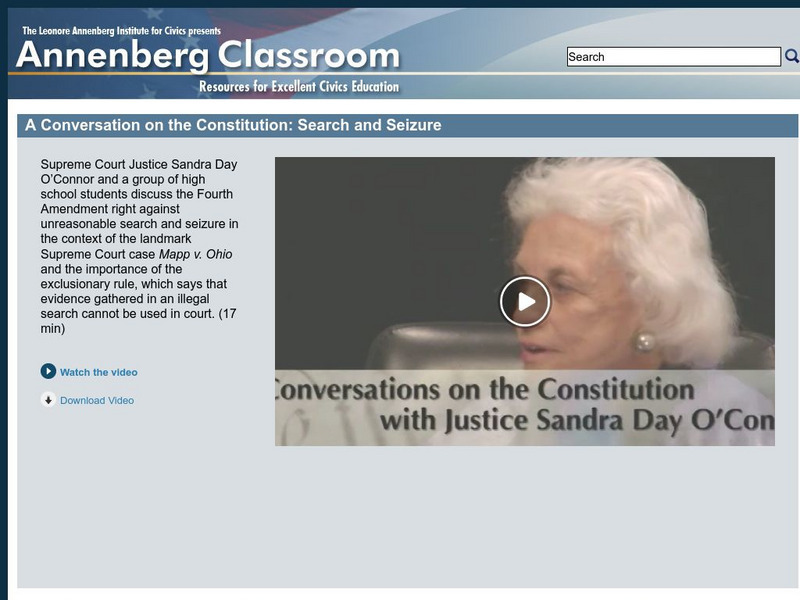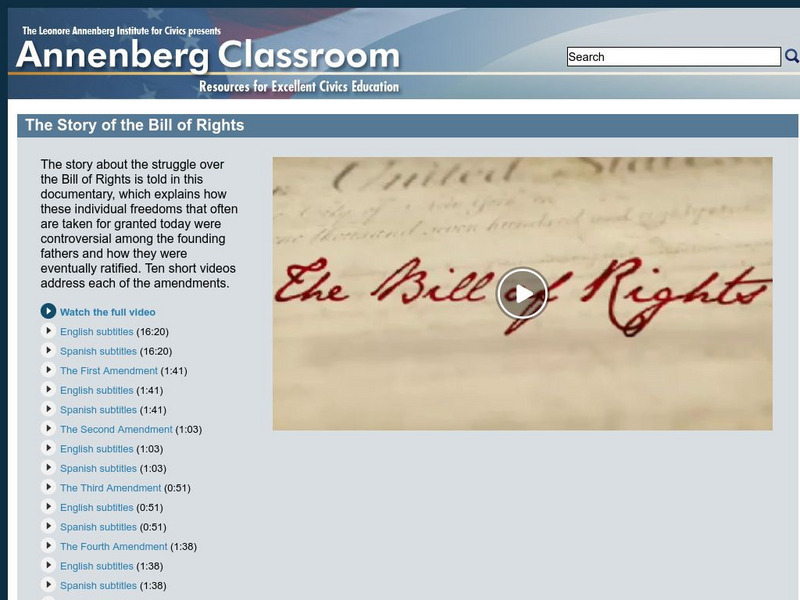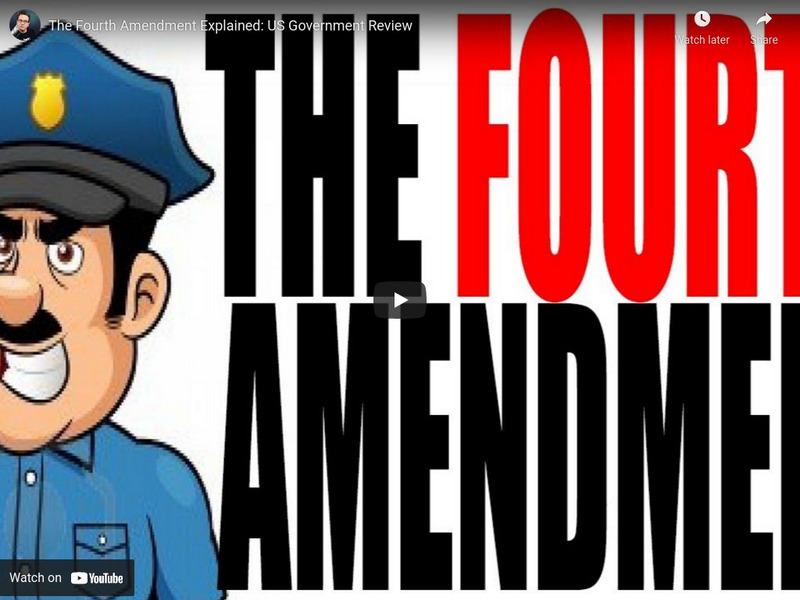Center For Civic Education
60 Second Civics: 4th and 5th Amendments Pt. 2: Warrants and General Warrants
Explains what warrants and general warrants are and how they are used.
Center For Civic Education
60 Second Civics: 4th and 5th Amendments Pt. 3: General Warrants in Colonies
Prior to the 4th and 5th Amendments, general warrants were used by the British to determine whether an American colonist was violating British laws, e.g., by smuggling.
Center For Civic Education
60 Second Civics:4th and 5th Amendments Pt.4: General Warrants and American Rev.
The use of general warrants by the British was a contributing factor to the American Revolution, and led to the eventual adoption of the Fourth Amendment.
Center For Civic Education
60 Second Civics: 4th and 5th Amendments Pt. 6: Unreasonable Search and Seizure
Discusses Justice Robert Jackson's observation about unreasonable searches and seizures.
Center For Civic Education
60 Second Civics: 4th and 5th Amendments Pt. 7: Privacy
Examines the Fourth Amendment's privacy protections.
Center For Civic Education
60 Second Civics: 4th and 5th Amendments Pt. 8: Warrants and Probable Cause
Looks at the Fourth Amendment's requirement for police to obtain a warrant, and what probable cause means.
Center For Civic Education
60 Second Civics: 4th and 5th Amendments Pt. 9: When Warrants Are Not Required
Looks at the times when law enforcement officers are not required to obtain a warrant for a search.
Center For Civic Education
60 Second Civics: 4th and 5th Amendments Pt. 10: The Exclusionary Rule
Examines the exclusionary rule, why it was needed, and how it works.
Center For Civic Education
60 Second Civics: 4th and 5th Amendments Pt. 11: Exclusionary Rule Extended
Discusses how the exclusionary rule was extended to criminal trials in state courts, and the controversy this caused.
Center For Civic Education
60 Second Civics: 4th and 5th Amendments Pt. 12: Exceptions to Exclusionary Rule
The Supreme Court has allowed exceptions to the exclusionary rule, such as when evidence would have been inevitably discovered.
Center For Civic Education
60 Second Civics:4th and 5th Amendments Pt.13: Alternatives to Exclusionary Rule
Learn about some other methods employed to check the abuse of power by law enforcement.
Center For Civic Education
60 Second Civics: 4th and 5th Amendments Pt. 14: When Warrants Are Not Required
There are times when warrants are not required for a search, such as in a school.
Annenberg Foundation
Annenberg Classroom: A Conversation on the Constitution: Search and Seizure
Supreme Court Justice Sandra Day O'Connor and a group of high school students discuss the Fourth Amendment right against unreasonable search and seizure in the context of the landmark Supreme Court case Mapp v. Ohio and the importance of...
Annenberg Foundation
Annenberg Classroom: The Story of the Bill of Rights
Eleven short documentaries tell the story of these individual freedoms that often are taken for granted today. But in 1787, when they were first discussed at the Constitutional Convention, the Founding Fathers rejected them. Why were...
Annenberg Foundation
Annenberg Classroom: Search and Seizure: Mapp v. Ohio
In 1957, Dollree Mapp stood up to police who tried to enter her home without a search warrant. Her act of defiance led to a landmark Supreme Court ruling in Mapp v. Ohio that limited police powers.This documentary explores the Fourth...
Crash Course
Crash Course Government and Politics #27: Search and Seizure
Crash Course video [7:37] in which Craig Benzine discusses rights of the Fourth Amendment, Search and Seizure, and the protections that apply to citizens.
Center For Civic Education
60 Second Civics: 4th and 5th Amendments Pt. 5: Description of 4th Amendment
Describes the contents of the Fourth Amendment.
HipHughes History
Hip Hughes History: The Fourth Amendment Explained: Us Government Review
Explains the 4th Amendment to the Constitution which protects citizens from unreasonable search and seizure. [12:40]





